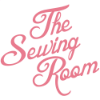Summer is my busiest time of year so I only work on projects I can pick up and put down easily and those that travel well. That usually translates into hand sewing or knitting. So, when The Recrafting co., my local (crafting) consignment shop, had a posting a few weeks ago for a Sashiko Sewing class, I could not pass it up. The instructor was Carol Ziogas, who also happens to be my neighbor. In addition to being a delightful neighbor and avid gardener, Carol runs a business selling Japanese fabric and sewing supplies. She also travels around the country attending quilt fairs to teach Sashiko and also to sell the gorgeous fabrics she imports from Japan. Funny enough, Carol also teaches these techniques to people in Japan. Quite impressive, really.
Sashiko is a form of stitching used as decorative reinforcement or functional embroidery. It is often used in combination with Boro which is a form of Japanese Patchwork using scraps of fabric. What we learned in Carol's class was a combination of both.
Carol discussed the historical significance of the art form, explaining that cotton scraps (not originally from Japan) were shipped and sold in bulk to fisherman along the coast lines. The scraps were then used to repair or reinforce clothing until it was no longer functional. Once the clothing was unwearable, the remaining fabric could then be used as padding in a quilt or between layers of fabric for added warmth.
Sashiko and Boro each eventually developed into an art form that has been applied in many ways throughout history. It is popular with quilters and those who just like sewing with their hands. You can use these stitching concepts to create all different kinds of home decor, mend clothing or make textile art.
Above are some of Carol's examples. Typically, you might see white stitching on Indigo, however Carol suggested we branch away from that norm, and try combining colors to create interesting textures and patterns.
The technique is fairly simple. A running stitch with tails/knots buried in the fabric layers. Carol recommends using Japanese Sashiko thread and needles, which she had available for us in the class. We could tuck the edges of the fabric to the inside or leave them raw. The idea is to use pieces of the scraps in combination, creating a new piece of fabric. We used traditional, pre-printed Sashiko fabric for the backing. This kind of fabric has a pattern printed on it, but then washes off once laundered. You ca use the pattern for your stitching on not. I did try to incorporate some of the pattern in my stitching but my stitches are not as even looking when I stitch from the backside (stitches started and progressed on the backside, using my backing as a guide).
We got to pick from a bin of scraps that Carol brought with her to class. Mine is below and it's the top left image (purples and golds). Sashiko thread comes in so many pretty colors!!! I chose a light yellow for my project.
This one is Mine!!!!
.........................
Each students work was so different from the next. I love how each piece is unique. Mine is still in the works and I think I'll keep adding to it until it becomes a long table runner I can use for potluck events!
After the class we headed over to Carol's house where she keeps a showroom for her fabric. Oh, my goodness. AMAZING!!!! I wasn't planning on buying more fabric but it was just TOO hard to resist. What I did get will coordinate with fabric I was gifted late last year for Christmas. I have a plan brewing and I think it will combine the work I learned here with some Alabama Chainin techniques and Art Deco scallop stencils.
Find out more about Carol, her Stitching Classes and her extensive collection of Japanese Fabric (which she sells retail and wholesale) on her Blog, her Facebook Page and in her Etsy shop.
Until Next Time, Happy Sewing!!!










